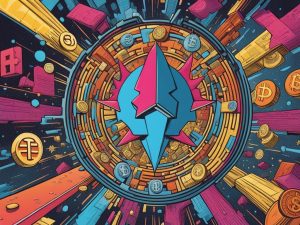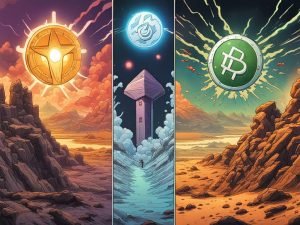Exploring Brazil’s Social Media Restrictions and User Adaptation 📱🚫
This article delves into the recent ban on X, formerly Twitter, by the Brazilian government, impacting millions. The government-imposed restrictions highlight various global issues regarding digital free speech, political conversations, copyright infringement, and illicit activities. As alternative social networks gain traction, the citizens are looking for methods to maintain their online presence. This year, users in Brazil are exploring virtual private networks (VPNs) and other tactics for circumventing government-imposed barriers.
Background on Brazil’s Social Media Ban 🌎
Recently, the Brazilian government made headlines by prohibiting access to X, a platform owned by Elon Musk. This decision prompted a notable exodus of users seeking alternative outlets like Bluesky, which reported a spike in registrations post-ban. However, many users remained determined to access X, resorting to VPNs for workarounds. Unfortunately, the government has declared the use of VPNs as illegal, risking significant daily fines for those who violate the order.
Understanding VPNs: Protection and Privacy 🔒🌐
VPNs serve as a essential tool for online privacy, masking IP addresses, which function as digital identifiers. Each IP address discloses a considerable amount of user information, including geographical location and internet service provider. To combat online restrictions, VPNs hide this information and encrypt data during transmission to ensure secure browsing.
Zach, the executive director of Unredacted Inc., explains how VPNs can be utilized to navigate blocked content. For example, if a Brazilian user faces barriers accessing X, a VPN would allow them to transmit data through a secure tunnel to a country where the platform is accessible. The encrypted traffic is then protected from inspection by both ISPs and the government.
Exploring the Limitations of Traditional VPNs ⚠️
While VPNs can be effective, Zach cautions that not all options provide the same level of protection. Many conventional VPN protocols, like OpenVPN and WireGuard, can be compromised through deep packet inspection (DPI) methods by ISPs or governments. The visibility of these common protocols can lead to potential risks for users seeking privacy.
Moreover, pressure from government agencies can force VPN providers to hand over user data, particularly in investigations of criminal behavior. Even though people may use VPNs for illegitimate activities, many legitimate users rely on these tools for maintaining their online security and privacy. Zach emphasizes the importance of choosing a VPN with a solid privacy policy and verifiable no-logging claims.
Choosing Safer Alternatives: Obfuscated Protocols 🚀
Zach advocates for the use of obfuscated protocols rather than standard VPNs. These advanced protocols—such as Shadowsocks, webtunnel, and Tor transports—are less recognizable compared to standard VPNs. They provide a safer option for users seeking to remain anonymous while bypassing censorship without revealing their activity or intent.
The Reality of Censorship: Can VPNs Really Help? 🛡️
Even with advanced VPNs, it is critical to remember that all online activities can still be monitored if their patterns are consistent. Sophisticated censorship tactics may block certain VPN protocols, causing collateral impact on legitimate sites. Zach acknowledges that while the intentions behind such restrictions may be well-meaning, they raise concerns regarding overreach and data requests that extend beyond necessity.
The key to selecting the right VPN lies in finding one that collects minimal data and has transparency around logging practices. Users should focus on providers with solid reputations and third-party audits of their services to further ensure their privacy.
Exploring Popular VPN Options 🌟
Numerous VPNs are available in the market, including recognizable names like NordVPN, ProtonVPN, SurfShark, and ExpressVPN. Furthermore, decentralized VPN (DPN) solutions are emerging from companies like Mysterium Network, Orchid, Deeper Network, and Tachyon.
Zach points out that for less tech-savvy users, Tor Browser and Tor’s Orbot act as highly effective means to navigate censorship while ensuring a user-friendly experience. The Outline VPN is another accessible choice that facilitates cross-platform usability.
Hot Take: Embracing Online Freedom Amidst Censorship 🌐✊
For those living under restrictive environments, using tools like Tor or Outline offers some of the safest pathways to keep discussions free and unfiltered. These methods enhance privacy by routing connections through various nodes, making it difficult for outside entities to trace user activity. As the digital landscape continues to evolve, utilizing innovative solutions and seeking reliable VPN alternatives will empower individuals to reclaim their online freedoms.
Sources:





 By
By

 By
By
 By
By
 By
By
 By
By